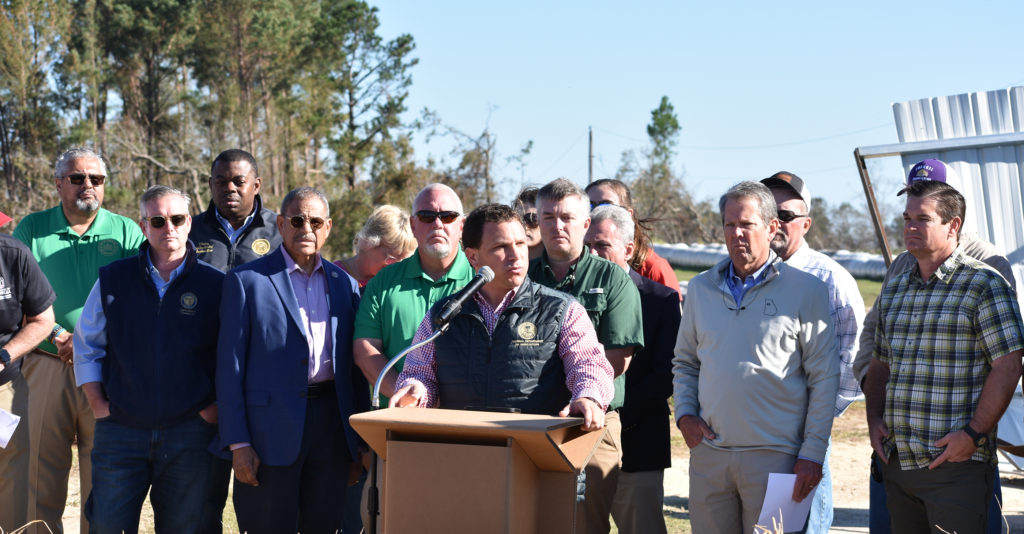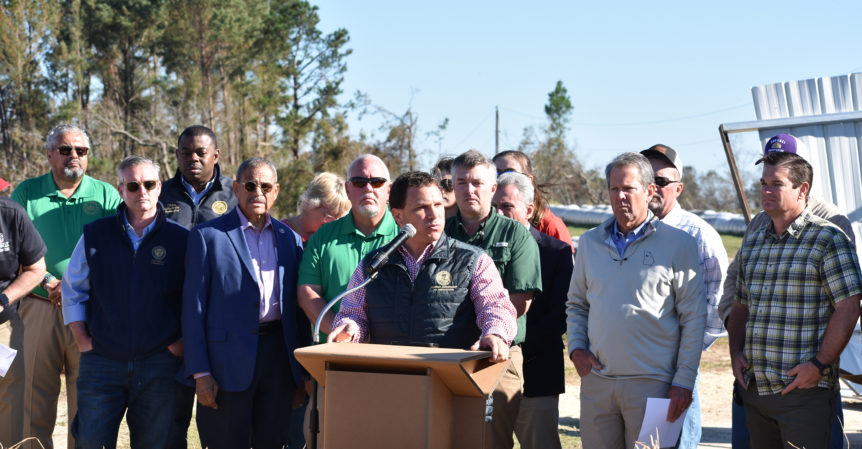
By Clint Thompson
Hurricane Helene’s financial devastation to Georgia’s agricultural sector is already staggering.
Unfortunately, those numbers will likely increase, especially to specialty crops, says Chris Butts, executive director of the Georgia Fruit and Vegetable Growers Association (GFVGA).

“What we’re looking at now is the immediate crop losses to the fall crop, but we’re just as concerned with problems that are going to take a little bit longer to rear their head and show the true extent of damage. That’s everything from erosion and field damage to crops that still may be in the field which we’re still trying to salvage and harvest, all the way to buildings and infrastructure,” Butts said. “Unfortunately, that number is just going to get bigger and bigger the further we get from harvest.
“Unfortunately, I think the worst is yet to come in some sense.”
University of Georgia (UGA) College of Agricultural and Environmental Sciences (CAES) preliminary estimates for Helene’s economic impact topped $6 billion.
The state’s fruit and vegetable crops endured much of that financial wrath when Helene moved through Georgia on Sept. 26 and 27. Vegetables suffered between a $100 million and $120 million loss. Georgia’s blueberry industry suffered a $52 million impact. The citrus industry was dealt a 40% loss, amounting to $12 million.
Russ Goodman, a Georgia blueberry grower, estimates that next year’s production will only net about 40% as a result of the high winds and excessive rains.
“Nobody knows what that (blueberry yield) number will be. How does the crop react from being under water with Debby and then being in 90 mile per hour winds with this storm? I think we’ll see a definite reduction in yield,” Butts said. “But we’re not going to know what that number is until we get there.”










